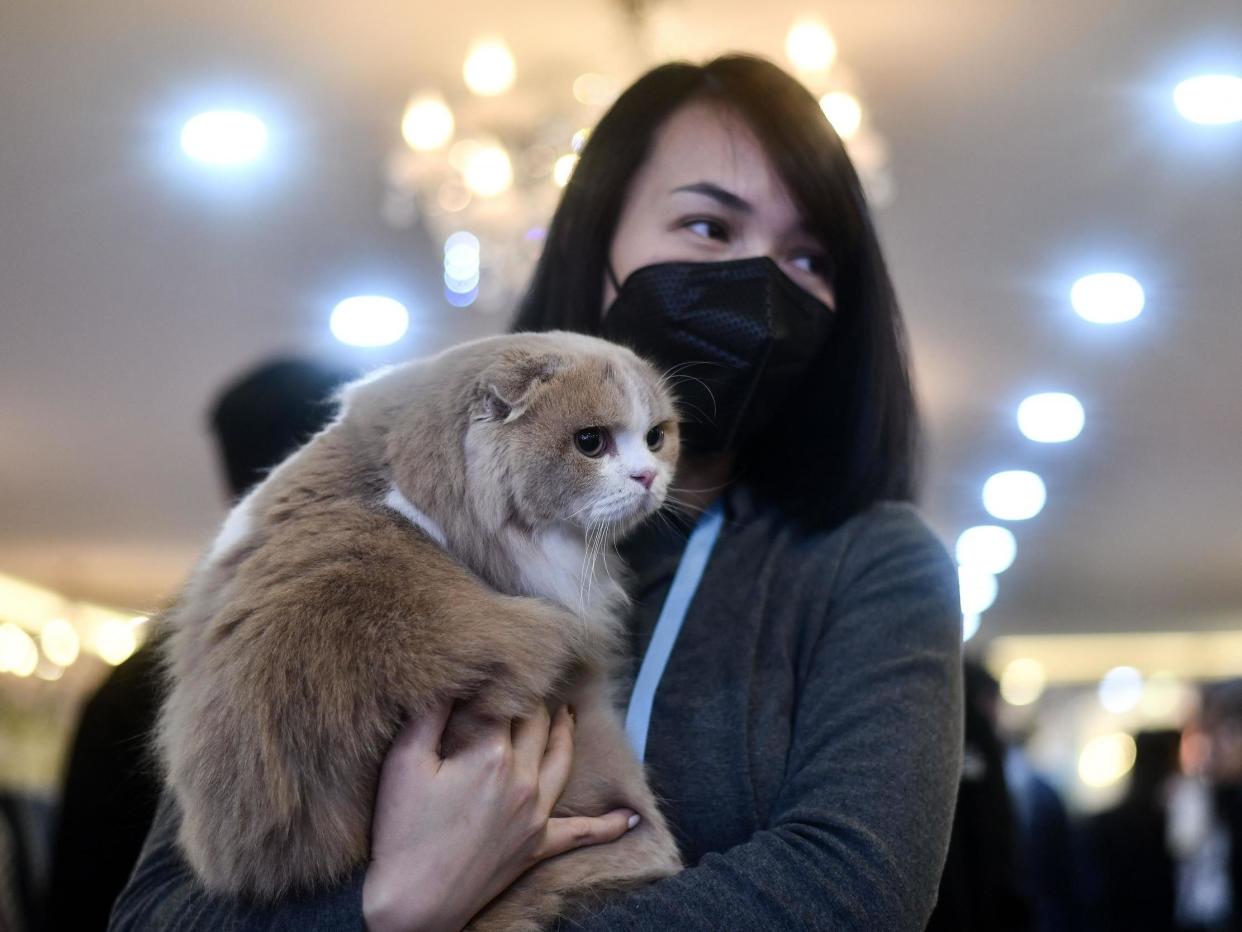Vets tell pet owners to keep cats indoors if they are self-isolating with symptoms

Pet owners who are infected with coronavirus or self-isolating have been told to keep their cats indoors amid evidence that domestic animals can be infected by Covid-19.
The British Veterinary Association (BVA) issued the warning but said “owners should not worry” about animal-to-human transmission, adding that cats from non-affected households can still be allowed out during the lockdown.
Research from the Harbin Veterinary Research Institute in China has suggested that cats may be able to catch Covid-19 and spread it among themselves. Dogs are not as susceptible to infection, the study added.
Even then, the risk of a pet contracting the virus is low. Globally, only two dogs and two cats have tested positive for the virus, according to the American Veterinary Medical Association (AVMA).
“Over 1 million human cases at this point worldwide and we’ve only seen four domestic animals test positive so far worldwide, so the risk is very minimal [for Covid-19] to get to pets,” said William Sander, an assistant professor at the University of Illinois’ College of Veterinary Medicine.
While the BVA said owners should still take “sensible precautions” and “practise good hygiene” when handling their pets, president Daniella Dos Santos insisted there was “no evidence that pets can pass Covid-19 to their owners”.
“We are not advising that all cats are kept indoors,” she said. ”Only cats from infected households or where their owners are self-isolating, and only if the cat is happy to be kept indoors.
“Some cats cannot stay indoors due to stress-related medical reasons.
“There have been a tiny number of cases of Covid-19 in animals and in all cases, it is likely that the transmission was human to animal.
“From the small number of cases, it appears that dogs do not show symptoms, but cats can show clinical signs of the disease.”
The first confirmed case of human-to-animal transmission was reported in Hong Kong in late February after an infected woman passed the virus to her dog, which showed no symptoms of the disease, according to the region’s Agriculture, Fisheries and Conservation Department.
Earlier this week, a tiger at the Bronx Zoo in New York tested positive for coronavirus, with six others thought to be infected by an asymptomatic zookeeper.
This followed confirmation that a cat in Belgium had contracted Covid-19 after its owner fell ill with the disease.
The Chinese research team from Harbin said: “The cats we used in this study were ... highly susceptible to SARS-CoV-2, which replicated efficiently and transmitted to naive cats.
“Surveillance for SARS-CoV-2 in cats should be considered as an adjunct to elimination of Covid-19 in humans.”
The study has not yet been peer-reviewed although experts said the findings were credible.
The BVA points out that, like any surface, an animal’s fur could carry the virus for a time “if a pet were to have come into contact with someone who was sick”.
Despite increasing evidence of human-to-animal transmissibility, there is nothing to suggest animals can pass the disease back to people.
Karen Terio, the chief of the Zoological Pathology Programme at the University of Illinois’ College of Veterinary Medicine, which assisted in diagnosing the Bronx Zoo tiger, said: “To date, we have no evidence of the virus being transmitted from a pet to their owners. It’s much, much more likely that an owner could potentially transmit it to their pet.”
The focus in the control of coronavirus “undoubtedly needs to remain firmly on reducing the risk of human-to-human transmission”, said Dirk Pfeiffer, an epidemiologist at the City University of Hong Kong.
Read more
Can you still get pet food and essentials delivered?
How to feel less anxious about the coronavirus
How to be productive when working from home during coronavirus

 Yahoo News
Yahoo News 
